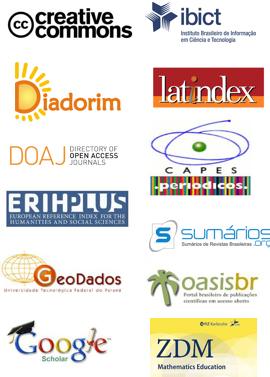WORKING MEMORY AND MATHEMATICAL THINKING: A COGNITIVE AND AFFECTIVE NEUROSCIENCE APPROACH
DOI:
https://doi.org/10.17921/2176-5634.2012v5n2p%25pResumo
Good performance on mathematical tasks requires the development of highly complex skills. The working memory model provides a useful framework for understanding the role of the different cognitive mechanisms involved in these mathematical skills. The present paper reviews several neuropsychological and neuroimaging studies, suggesting that mathematical performance depends on working memory resources. The paper begins with a description of the different working memory components. We then present evidences that suggest that each working memory component plays a crucial role in mathematical problem solving. We also review numerous studies that show that working memory and mathematical thinking share a considerable number of neural circuitries within the posterior parietal cortex and prefrontal regions. Finally, we discuss how anxiety might jeopardize working memory capacity and thus reduce performance in solving mathematical problems. Measures that increase working memory capacity might improve mathematical problem-solving achievement. Interventions based on controlling the negative feelings that precede mathematical performance might also be helpful for people who suffer from mathematical anxiety.Downloads
Publicado
2015-06-18
Como Citar
Landeira-Fernandez, J., Zylberberg-Landeira, R., Charchat-Fichman, H., & Cárdenas, F. P. (2015). WORKING MEMORY AND MATHEMATICAL THINKING: A COGNITIVE AND AFFECTIVE NEUROSCIENCE APPROACH. Jornal Internacional De Estudos Em Educação Matemática, 5(2). https://doi.org/10.17921/2176-5634.2012v5n2p%p
Edição
Seção
Artigos


